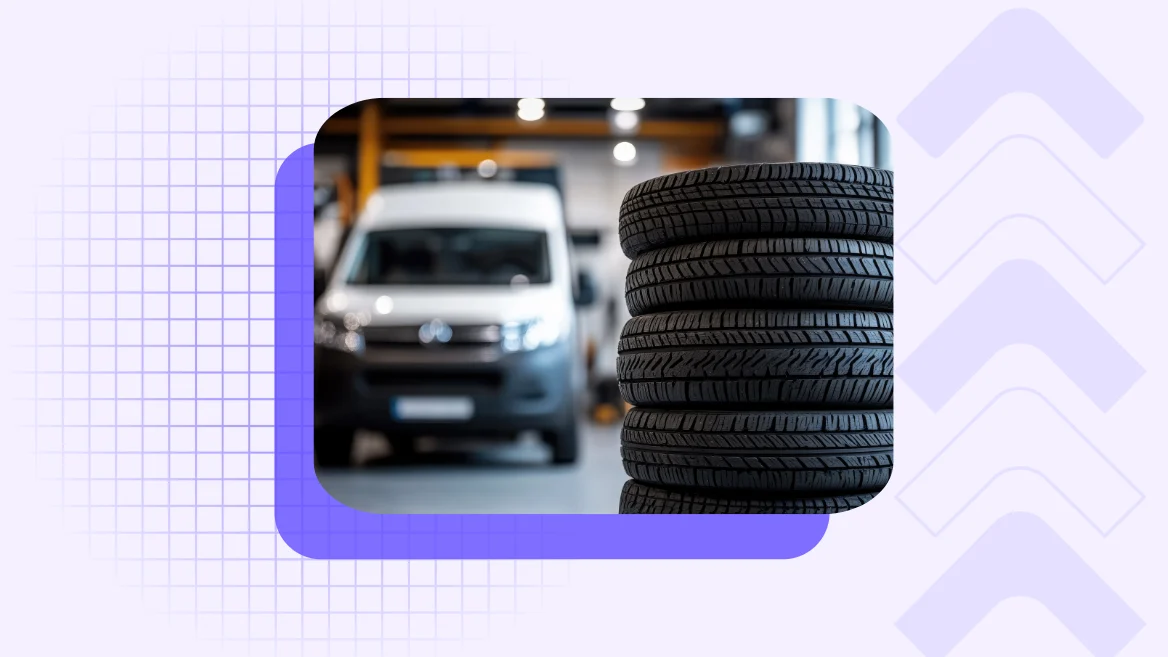As the courier industry is growing with soaring demand, how is the industry adapting to increased pressure and can more be done to support those working in it?
In the wake of Brexit and with fuel prices reaching record highs, the logistics industry is experiencing unprecedented demand nationwide. According to the Office for National Statistics (ONS), the number of business premises used for transport, logistics and warehousing in the UK has almost doubled in the last decade. A recent report from Mordor Intelligence found that parcel volume recently grew by 33%, year-on-year, reaching 5 billion in 2020, up from 3.8 billion in 2019.
As the UK’s leading return loads platform for self-employed courier professionals, we wanted to discover how those working in the industry are handling the workloads that come with growth – and the added pressure it brings. We asked 287 courier drivers and companies for their insights into everyday pressures, health & safety at work and work-life balance. We also asked businesses about their current priorities as the industry sees surging demand and they navigate through turbulent economic times.
The survey revealed that despite there being various obstacles for couriers and firms, they can be overcome with the right support.
Key findings
- Almost a quarter (23%) of courier companies have increased salaries/bonuses
- 47% of drivers want customers to better understand the pressure on delivery drivers
- Over one in eight couriers believe embracing technology can relieve everyday pressures
- 41% of self-employed drivers see smart motorways and the removal of hard shoulders as the biggest health & safety risk for 2022
- Almost two-thirds (62%) of courier companies see opportunities for growing their profits
- More than half (59%) of courier firms are looking to increase their customer base
- Over a third (37%) of firms don’t believe they’ll be impacted by new cabotage rules
How has the courier industry changed in recent years?
Unsurprisingly, as the country confined itself at home, the demand for deliveries surged. Half (51%) of the courier companies who took our survey said they deliver more parcels now than they did prior to Covid-19. According to the ONS, the proportion of UK retail sales taking place on the internet has risen by 51% over the last four years.
At the same time, the industry is coming under pressure from several angles, including staff shortages, government regulatory changes and higher costs.
As with many industries in recent years, increased demand has affected those working in the sector – half of all courier employees said that pressure caused them excessive stress or had a negative impact on their mental health. Almost two-thirds (61%) of business owners were affected by mental health issues, compared to 46% of self-employed drivers: pressure is having an impact at all levels in the courier industry.
Away from the clear health implications, this has impacted many companies’ bottom line. 57% of courier companies have noticed that higher levels of driver pressure have indirectly impacted company profits. These firms hope that they can help to alleviate some of these strains and see a corresponding uptick in their figures.
Courier businesses feeling the squeeze of rising costs
To understand where support is needed most in the courier industry, we asked drivers and companies which issues were most likely to jeopardise the commercial viability of their businesses/jobs. Unsurprisingly, 90% feared the impact of rising fuel prices, and almost three-quarters (72%) cited increased costs of operating.
Challenges are also posed by government clean air initiatives, according to around a third of respondents. Not only are a growing number of UK cities introducing low emission or clean air zones, but some are also widening these zones and/or charging more to travel through them. The expansion of such initiatives is another rising cost companies are experiencing.
How are industry pressures impacting couriers on the ground?
Our study highlights the increased demands that have been placed on couriers – 85% of couriers state that (over the last two years) they’ve regularly experienced excessive physical demands on the job. Raising awareness of challenging aspects of the job is key to making them – and couriers’ work-life balance – more manageable.
With demand for courier services so high, a quarter of the couriers we surveyed have regularly worked six-day weeks in the last couple of years. If drivers are to take advantage of this rocketing demand, they need greater support. Half (56%) of couriers regularly missed a lunch break and over a third (36%) have slept in their vehicles.
Sometimes, the demands couriers face become unacceptable. Almost 1 in 5 (18%) have been physically or verbally assaulted by a customer, and 7% have even had a customer chase their vehicle.
How can pressure be relieved?
Overwhelmingly, couriers believe that driver pressure could be lessened if customers understood the strain they’re put under. Almost half (47%) of the drivers surveyed thought customers’ perceptions were key, while others saw issues with client expectations, delivery options and mental health support.
Among self-employed drivers, almost two-thirds (63%) said improved legislation for self-employed people would lead to less pressure.
Improving collaboration and understanding between industries is key
Amid continuing supply chain problems in the UK, courier companies are sometimes struggling to meet demand. Some are even reluctant to work with certain industries, who they’ve found put more pressure on their delivery service. The industries couriers identified as putting most pressure on them are:
- Construction - 21%
- Food & drinks product - 21%
- Agriculture, forestry and fishing - 18%
- Health / medical - 16%
- Hospitality, events & food service - 15%
- Retail - 15%
- Fashion - 9%
- Commercial & consumer garden - 8%
- Consumer beauty & cosmetics - 6%
- Manufacturing - 4%
Logistics is closely entwined with other industries, with supply chain issues affecting every sector when they occur. Enhanced understanding and support between sectors is, therefore, essential in overcoming the economic obstacles and external pressures so many businesses are currently experiencing.
What do self-employed drivers currently see as the biggest risks to health & safety?
Two in five drivers (41%) saw smart motorways and the removal of hard shoulders as a significant danger. While a similar proportion (37%) viewed long journeys with insufficient breaks as a serious problem.
A quarter (27%) believe excessive stress and workplace pressure is a real risk to their wellbeing and, as the survey has highlighted, there are various triggers that cause drivers stress.
Another consideration is time spent alone on the job, which will clearly have a mental health impact. One in five (21%) drivers are concerned about the solitary nature of the role.
Uncovering driver concerns is the first step towards alleviating such stresses. The government can also help by implementing extra safety measures and rest areas for drivers.
How have political and regulatory changes impacted the courier industry?
The courier industry continues to navigate through the political and regulatory impacts of the Brexit transition.
The impact of Brexit
In addition to all the other issues they face, 15% of self-employed drivers said Brexit regulations and associated industry changes regularly put pressure on their operations. One out of 10 drivers even highlighted changing driver regulations as the greatest risk to drivers’ health & safety in 2022.
Some 16% of all drivers and companies said Brexit regulations are threatening the very commercial viability of their work. Also, 9% of couriers say the new EU cabotage rules will put serious pressure on their work, affecting their job security or the future of their company.
What’s certain is that the vast majority of companies are narrowing their focus to the UK: expanding operations in the EU is a priority for just 5% of them.
How prepared are courier companies for new cabotage rules?
One of the biggest challenges courier companies and drivers face is changing cabotage rules. As of May 2022, even courier drivers taking goods to the EU must have a community licence and fulfil various requirements, meaning more Brexit bureaucracy. According to our survey, 63% believe they’ll be impacted.
Yet almost a quarter (24%) of courier businesses don’t understand the new cabotage rules and aren’t prepared for their implementation. Only 5% of those that understand the rules think they won’t be impacted.
Where are courier companies focusing their efforts?
In an industry that’s developing quickly and increasingly embracing new technology, courier companies are looking to the future and expansion opportunities. Despite the industry growth, there are a section of couriers looking to pivot their business model in response to a shifting market landscape. These are companies’ primary objectives:
- Growing profits - 62%
- Increasing customer base - 59%
- Pivoting business model to stay afloat - 27%
Reacting to staffing challenges in the past two years, two-thirds (66%) of businesses have implemented some kind of measure to attract staff. This is how they’ve done it:
- Increased salaries/bonuses - 23%
- Referral schemes - 10%
- Increased their social media presence - 8%
Almaz Cleary, sales manager at Courier Exchange, says:
“During Covid-19 lockdowns, delivery drivers were rightly recognised as essential workers, with the country realising just how important they are to modern living. It’s been an incredibly tough two years for them, work-wise, with workloads heavier than ever and Brexit just one of the factors complicating their everyday routines.
“What we’re seeing in this survey is the far-reaching nature of the pressures. However, identifying and understanding them is key to progress being made.
“It’s also great that so many companies are looking to technology as a way to help with everyday stresses. We are committed to building technology that has a pivotal part to play in alleviating supply chain pressures. Digital transformation is how the industry will grow and prosper even further.”




